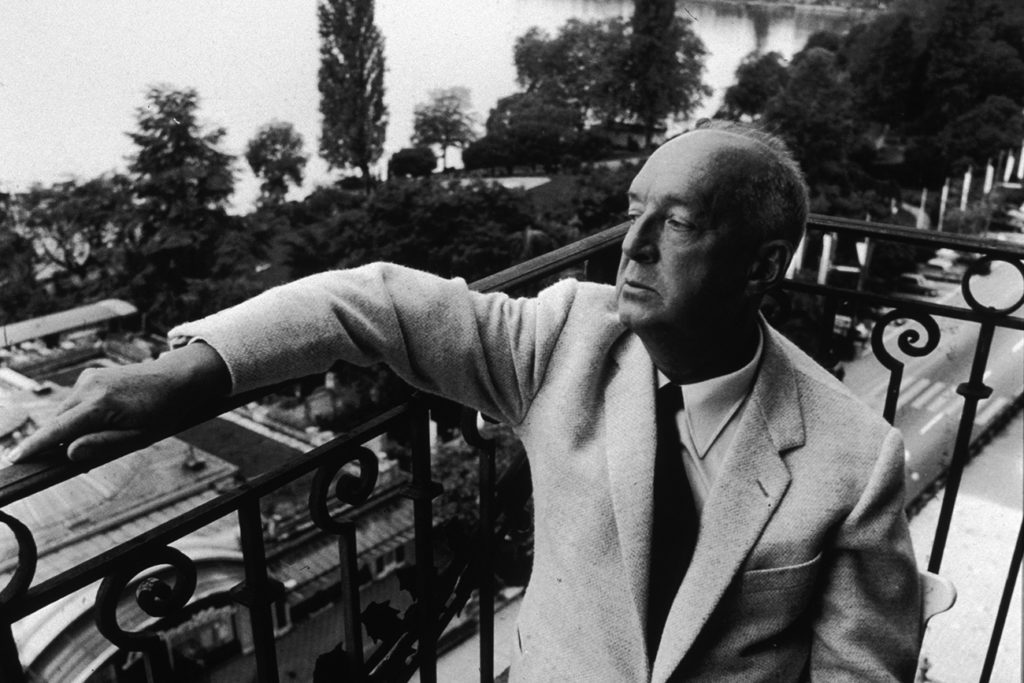As a capstone to National Poetry Month, we bring you a 1964 recording of Vladimir Nabokov at 92Y reading his poem “The Ballad of Longwood Glen,” which he describes as “a short poem I composed in Wyoming, which is one of my favorite states of existence, and it is also one of my favorite ballads.” Nabokov was quite particular about pronunciations, particularly that of his own name. As Matt Levin, who spent long hours at the Morgan Library listening to the archival audio of our Writers at Work interviews for our podcast, wrote recently:
The four-beat leitmotif that George Plimpton conjures out of the name Nabokov never fails to delight me in its voluptuousness—Nǝ (pause) Beau (pronunciation drawn out like an arch gossip columnist) Kavv (the fricative subtle, fading away like a comet tail). It corresponds perfectly to the wily quote that Nabokov himself gives about the pronunciation of his name—“My New England ear is not offended by the long, elegant middle o of Nabokov as delivered in American academies. The awful ‘Na-bah-kov’ is a despicable gutterism.”
In the recording below, there are precisely zero despicable gutterisms to be found:
from The Paris Review https://ift.tt/2rbzx6U

Comments
Post a Comment